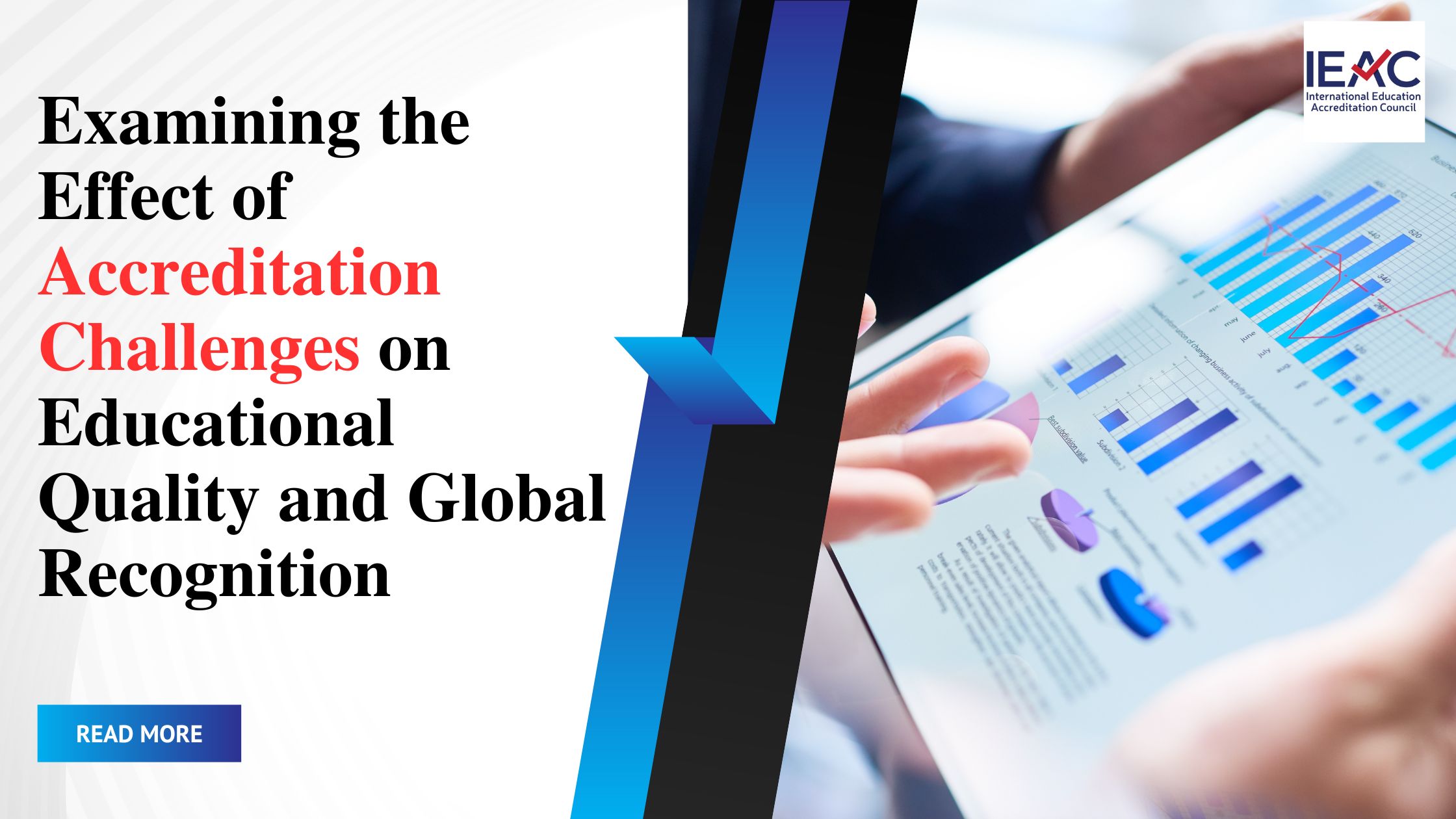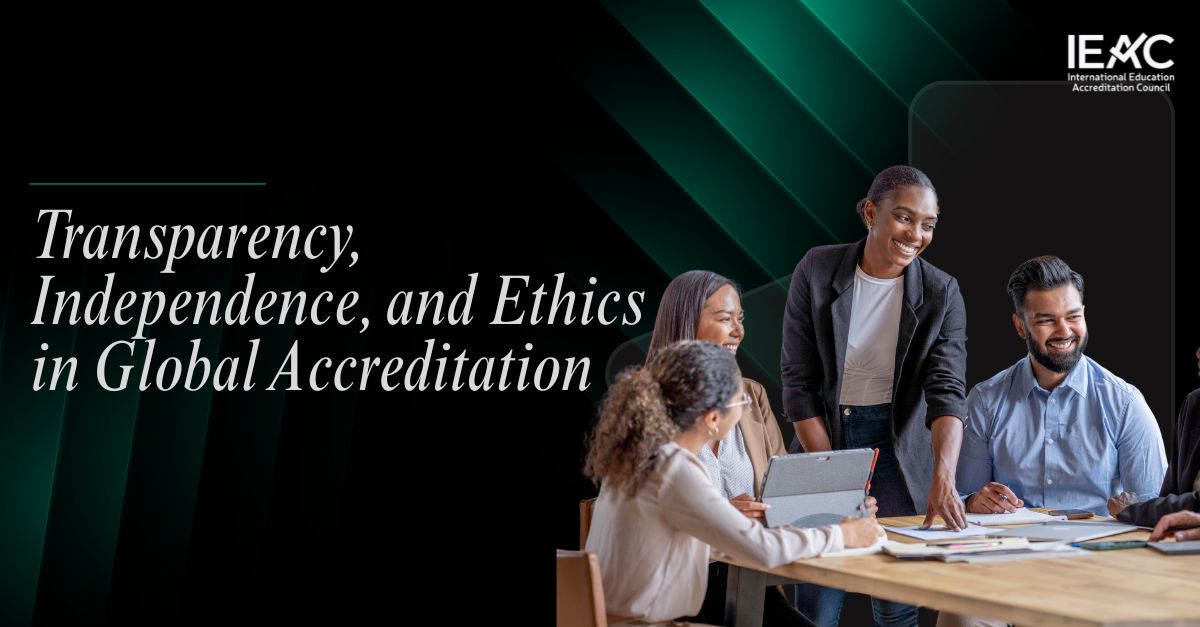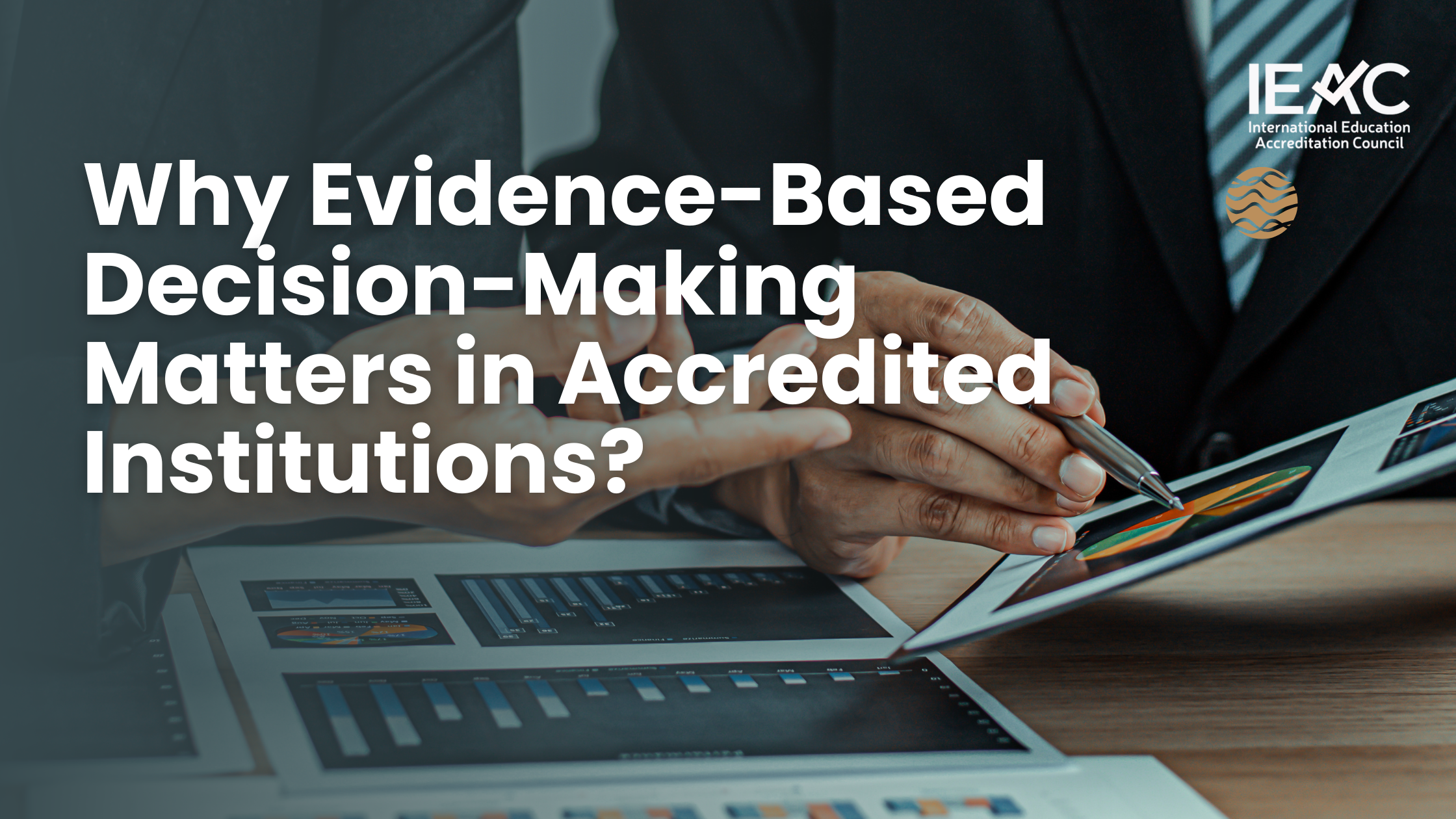- Home
- About IEAC
- Accreditation
- University Accreditation
- College Accreditation
- Online Institution Accreditation
- School Accreditation
- University Recruitment Agency Accreditation
- Programmatic Accreditation
- Teacher/ Lecturer Accreditation
- Religious Institutes Accreditation
- Affiliate Accreditation
- Research Accreditation Candidacy Accreditation
- IEAC Membership
- Institutions Accredited
- Accreditation Process
- Contact Us Webinar Apply Now
Blog
Examining the Effect of Accreditation Challenges on Educational Quality and Global Recognition
Lorem ipsum dolor sit amet, consectetur adipiscing elit, sed do eiusmod tempor incididunt ut labore et dolore magna aliqua. Quis ipsum suspendisse ultrices gravida. Risus commodo viverra maecenas accumsan lacus vel facilisis.

Examining the Effect of Accreditation Challenges on Educational Quality and Global Recognition
In an age where online degrees, micro-credentials, and international campuses are reshaping higher education, one thing remains constant – accreditation.
Accreditation is the gold standard for institutional quality and integrity. But then again, here’s the catch: as the education landscape develops, so do the accreditation challenges that can make or break a university’s worldwide recognition.
Whether you're a student choosing where to study, an employer assessing credentials, or a university aiming for international prominence, accreditation is not just a checkbox, it’s an announcement of trust. And when important issues in accreditation are not spoken, the ripple effects can extremely compromise both quality assurance and worldwide reputation.
The Worldwide Accreditation Scene: What’s Changing?
Higher education is thriving. According to UNESCO, global student mobility has grown from 2 million in 2000 to over 6.1 million in 2023.
With this blast comes an urgent need for transparency, accountability, and global recognition—which is where international accreditation bodies like IEAC step in.
But the reality? Numerous institutions are still struggling with outdated practices, bitty accreditation processes, and misalignment with international benchmarks.
- Only 22% of higher education institutions worldwide meet all major international accreditation criteria (Source: IAU, 2023).
- 1 in 3 international students cite lack of recognition as a reason to avoid certain institutions (Source: QS Trends Survey).
- Institutions with internationally recognized accreditations report up to 35% higher student enrollment and 40% higher employer trust (Source: ICEF Monitor, 2024).
Let’s break down the top issues and how they affect the core pillars of higher education.
1. Fragmented or Unrecognized Accreditation
The Issue: In some countries, accreditation agencies lack international recognition or operate without reliable benchmarks.
The Impact:
- Students risk earning degrees not recognized abroad.
- Institutions miss out on international collaborations and student exchanges.
- Employers may question the credibility of graduates.
2. Lack of Outcome-Based Evaluation
The Issue: Accreditation frequently focuses on inputs (structure, faculty degrees) instead of outcomes like student success, employability, and real-world skills.
The Impact:
- Institutions may look good on paper but underdeliver on graduate readiness.
- Students graduate with degrees but without career-ready competencies.
- Employers report skill gaps. According to the World Economic Forum, 44% of employers say recent graduates lack essential soft skills.
3. Absence of Digital Readiness Checks
The Issue: Post-pandemic, digital transformation is no longer optional. Yet, many accreditors still assess institutions without reviewing their online delivery capabilities.
The Impact:
- Online programs lack dependable quality.
- Students receive uneven learning experiences.
- Institutions lose ground in global rankings.
4. Unproductive Quality Assurance Systems
The Issue: Accreditation can sometimes be overly bureaucratic, focused more on paperwork than real improvement.
The Impact:
- Institutions may “game the system” to pass audits.
- Real gaps in teaching, learning, and administration go unaddressed.
- Stakeholders lose trust in the process.
5. Lack of International Benchmarking and Peer Comparability
The Issue: Numerous national accreditations don’t align with international frameworks like Bologna Process, Washington Accord, or ESG standards.
The Impact:
- Credits aren’t transferable.
- Degrees are not recognized for global employment or further study.
- Students face barriers to international mobility.
Accreditation is Not a One-Time Badge - It’s a Constant Promise
The future of higher education is borderless, digital, and outcome-driven. But without vigorous, forward-thinking accreditation, even the best institutions risk losing relevance.
Students want assurance. Employers want quality. Universities want recognition.
By addressing the important issues outlined above and aligning with bodies like IEAC, institutions can not only meet the benchmarks they can set them. IEAC isn't just about passing standards. It's about raising them together.






